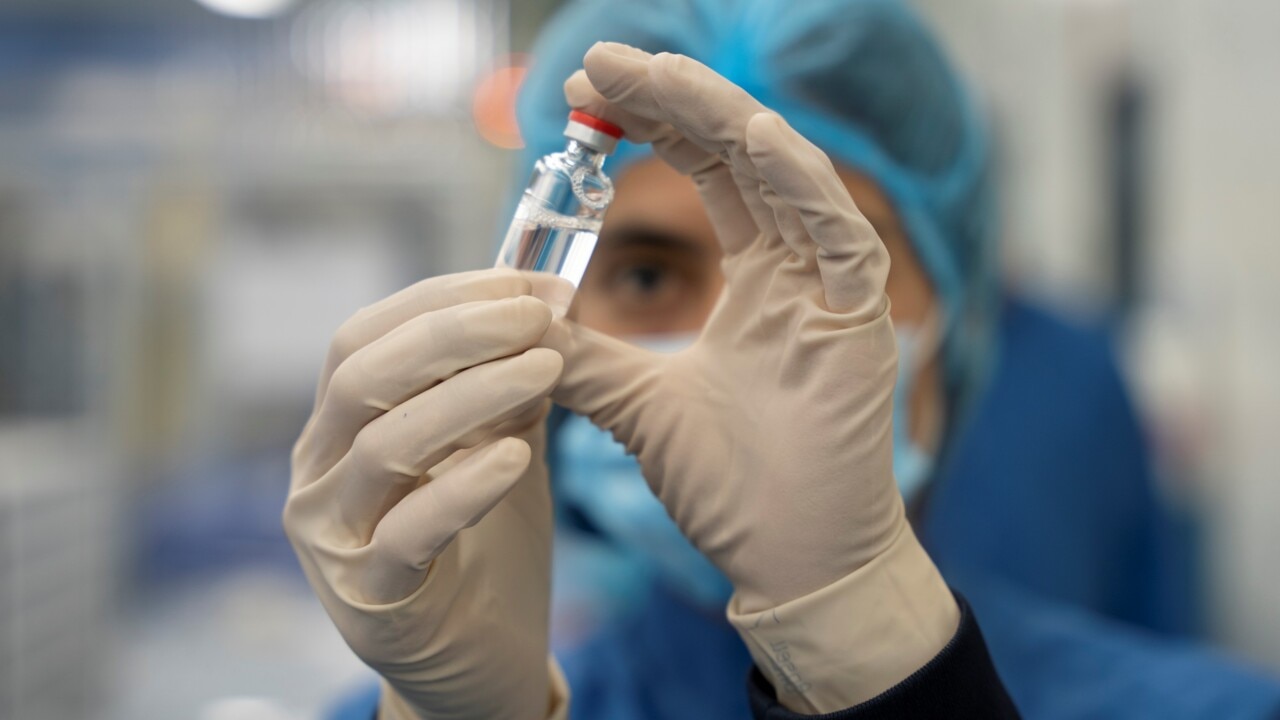All your AstraZeneca vaccine questions answered
Authorities have changed the recommended age for receiving the AstraZeneca Covid-19 vaccine. Here’s everything you need to know about getting the jab.

Coronavirus
Don't miss out on the headlines from Coronavirus. Followed categories will be added to My News.
What are the changes to Australia’s vaccine rollout?
Only Australians over 60 are now recommended to receive AstraZeneca’s Covid-19 vaccine, increased from the previous age limit of 50 and above.
This means the Pfizer vaccine is now the preferred Covid-19 shot vaccine for those aged 16 to under 60 years, while AstraZeneca will be offered to everyone over 60. But those aged 50-59 who have already received their first dose of the AstraZeneca vaccine without complication will be asked to receive a second dose of the same jab.
How safe is the AstraZeneca vaccine?
Sixty people in Australia have been diagnosed with confirmed or probable blood clots linked to the AstraZeneca vaccine. Those cases include two deaths, following the passing of a previously healthy 52-year-old woman last week.
For every 100,000 patients vaccinated the chances of suffering TTS is only 3.1 for those under 50, 2.7 those aged 50-59, 1.4 for those aged 60-69, and about 1.8 for those over 70.
By comparison, each day 50 Australians will develop a different type of blood clot not related to the vaccine.
As well as having a lower chance of serious complications from the AstraZeneca vaccine, older Australians face a greater risk of serious consequences from Covid-19 – tipping the balance in favour of them continuing to receive the jab.
What is thrombosis with thrombocytopenia syndrome, or TTS?
Thrombosis with thrombocytopenia syndrome, or TTS, is a new and extremely rare blood-clotting condition linked to AstraZeneca’s Covid-19 vaccine.
Suspected to be caused by a wayward immune response to the vaccine, it causes a reduction in small blood cells called platelet which can sometimes trigger clots to occur when they shouldn’t. The most dangerous occur in the brain when the platelets stick together and cause a blockage, leading to damage similar to a stroke.
People who have suffered previous forms of blood clotting or are on anticoagulants or platelet medicines following a cardiac stent or a stroke are at no greater risk from TTS.
If I’ve had my first shot of AstraZeneca, should I still receive my second dose?
Anyone who received their first shot of the AstraZeneca vaccine without any serious adverse events is recommended to continue with their second dose of AstraZeneca as scheduled.
None of Australia’s TTS cases have followed a second dose, with all 60 cases so far linked to a first jab.
The UK which has detected just 23 TTS cases among 15.7 million people who have received a second dose. This means that only about 1.5 cases occur in every million second doses in the UK, compared to about 14.2 for every million first doses.
How many people have already had their first dose of AstraZeneca?
So far 3.8 million doses of AstraZeneca’s Covid-19 vaccine have been administered in Australia.
This includes about 840,000 people aged 50-59 who have received a single dose of AstraZeneca’s Covid-19 vaccine and will be encouraged to continue with their scheduled second dose.
Can anyone refuse to have the second AstraZeneca dose and request Pfizer instead?
People are not currently able to swap to Pfizer after their first AstraZeneca dose.
Authorities are strongly encouraging them to have their second dose because the risk is far smaller of a clot with the follow-up shot.
What protection does just one AstraZeneca jab give, in comparison to both?
The latest international studies show both the AstraZeneca and Pfizer jabs provide strong protection against all Covid-19 variants, although two doses are far better than one. In terms of preventing hospitalisation from Covid-19’s Delta variant, the AstraZeneca vaccine is 71 per cent effective after a single dose and 92 per cent effective after two.
The Pfizer vaccine is 83 per cent effective in preventing hospital admission from the Delta variant after one dose, rising to 95 per cent after two doses, according to a Public Health England study of 14.000 patients.
What does this mean for the rollout of Pfizer in 40-60-year-olds with first appointments on pause in Victoria?
For people that already have received their first dose of AZ, the recommendation is to get their second dose of AZ. For anyone in the 50-59 age category that has booked in for AZ will have their booking honoured and instead be offered a Pfizer vaccination.
When will appointments for Pfizer be open again?
People can book in advance for their first Pfizer vaccination through the online booking system. There are currently no bookings available for the next few weeks, after the state government put a temporary pause on Pfizer jabs to ensure enough supply for second doses.




